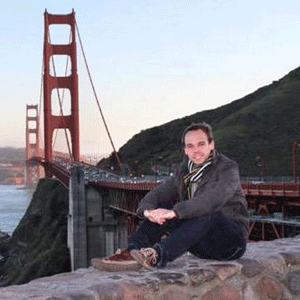
The events surrounding the Germanwings plane disaster highlights the need for a better understanding of mental illnesses, especially in the work place.
The South African Federation for Mental Health (SAFMH) is encouraging companies to ensure that employees are healthy both physically and mentally, while Health24's CyberShrink pointed out the need for firms to make psychological help readily available to workers.
This follows the the deaths of the 150 people in the tragic Germanwings Flight 4U9525 crash in the French Alps.
Read: Could the Germanwings disaster have been prevented?
"Many reports have come out suggesting that co-pilot Andreas Lubitz may have suffered from some form of mental illness, and that this may have caused him to crash the plane deliberately", SAFMH programme manager Marthé Viljoen said in a statement on Wednesday.
There are no simple answers
She told Health24 that it is important to understand that there is no simple answer as to what causes mental illness.
"Mental illness is caused by a combination of genetic, biological, psychological, and environmental factors -not personal weakness or a character defect. Being under a lot of pressure, prolonged exposure to extreme stress, traumatic events, and sometimes even drug or alcohol abuse, may also act as triggers for the onset of mental illness," said Viljoen.
The SAFMH said it was very concerned about reports that Lubitz had been booked off by his medical practitioner on the day of the crash without his employers, friends or family knowing that he was ill.
The fear of stigma
"The SAFMH often finds that people with mental illness are afraid to tell their loved ones or employees/co-workers about their diagnosis due to the fear of stigma, discrimination or marginalisation."
The organisation said that the possibility that these fears kept Lubitz from reaching out for help means that plane crash may have been avoided.
"SAFMH believes it is time that companies and institutions allocate more resources to support people in the workplace, and to ensure that employees are healthy both physically and mentally."
It pointed out that it is also important that this tragedy does not increase the stigma surrounding mental illness.
"It is important that we end the stigma surrounding mental illness and understand that people with mental illnesses or psychosocial disabilities need help and support in order to recover. Fear of marginalisation, abuse or discrimination should never prevent those in need from reaching out for help."
Reaching out for help
It said the majority of people who are diagnosed with severe stress, depression, bipolar disorder or schizophrenia will not be a danger to themselves or others if proper treatment is sought.
Viljoen explained to Health24 that there are a number of methods of treatment for mental illness. "The most effective is seeing a psychologist or psychotherapist for therapy, and being prescribed medication to help and stabilise the patients mood."
She said the therapy and the medication prescribed will vary depending on the diagnosis and the severity of the case, adding that people must also realise that recovery from a mental illness is not simply a matter of will and self-discipline.
"Recovery can be a difficult and long term process, and a person receiving treatment needs all the assistance and support from their loved ones and place of employment that they can get."
Don't blame depression
Health24's CyberShrink, Professor MA Simpson, also shared his views on the airplane tragedy, saying it should not be pinned on depression.
"It is extremely important that this tragedy should not be in any way blamed on depression. Depression does not do this. Depression may, sadly, render some people suicidal, in terms of seeking their own end, but is not a cause of mass murder."
Simpson added that no single method or device can prevent a pilot from causing death and destruction. "That will always be possible. But there are ways to substantially reduce that risk."
Monitoring the mental health of pilots
He said the current system for monitoring the mental health of pilots is highly unsatisfactory.
"It relies almost entirely on self-reporting, with a strong incentive not to be honest. Admitting to having problems, including psychological ones, means you’re likely to be grounded. And if you lie, it’s very unlikely that anyone will check." Simpson advised that it is essential to have a proper face-to-face interview by a psychologist or psychiatrist.
He also offered some advice to companies.
"It’s wiser to create a company culture that attributes no stigma to stress or illness, making psychological help readily available and regarding asking for help as a sign of being a good pilot, not of weakness. We’re far safer having a pilot who has been properly diagnosed and treated, than with someone too scared to reveal any problems."
Read the full column by CyberShrink
Also read:
Could depression really be caused by inflammation?




 Publications
Publications
 Partners
Partners











